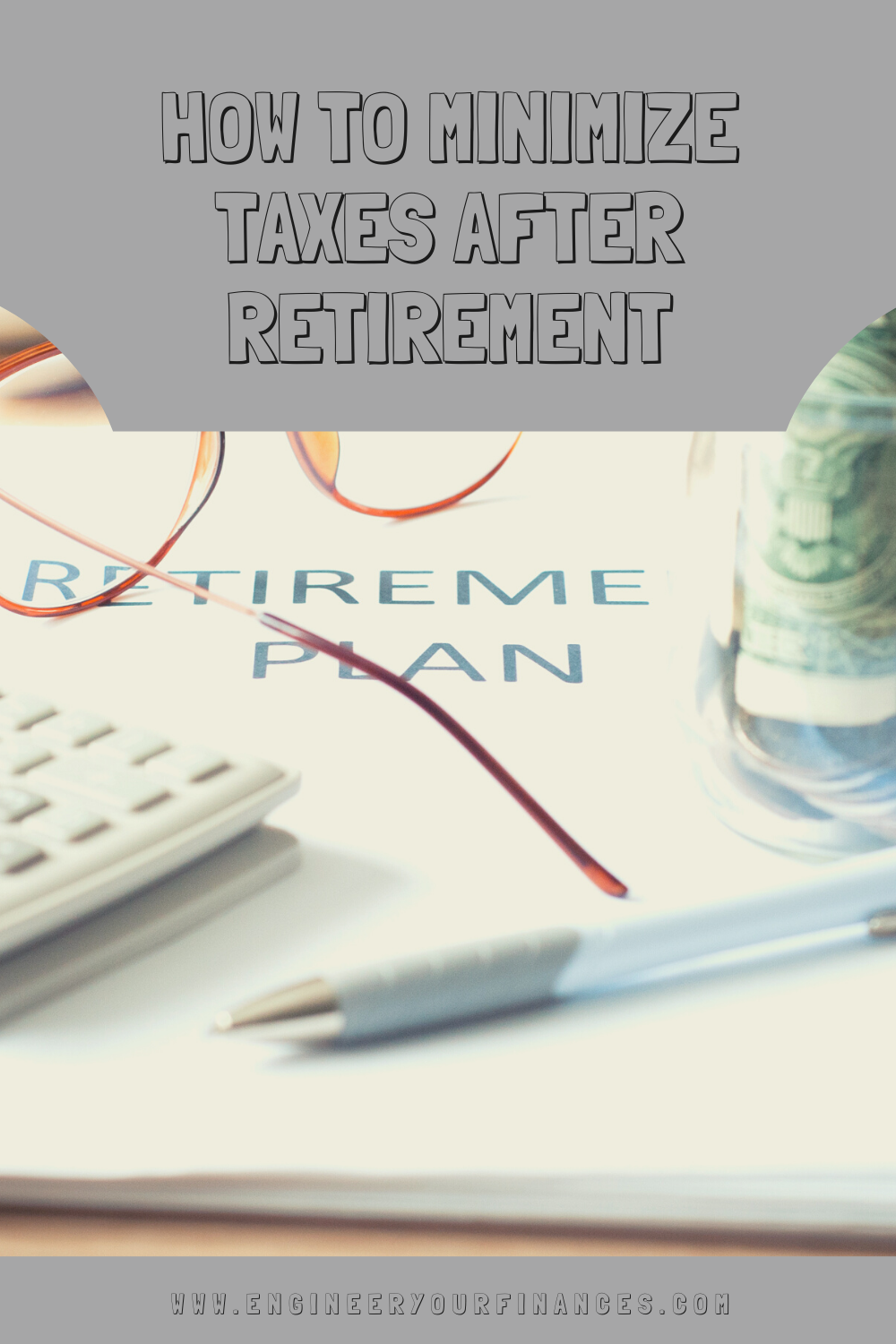It seems like all we do on this site is plan for retirement. While that is extremely important, many people forget what to do after retirement. One of the main issues people run into is the stress of watching their retirement account values slowly dwindle. Hopefully, you’ve saved enough to last your whole retirement; even so, it is important to cut costs wherever possible. One of the least intrusive ways to do this is to save on taxes when you can. This makes very little difference in your quality of life and can save you quite a bit of money in the long run. When figuring out how to minimize taxes after retirement, there are a few easy strategies to employ.
Even Out Your Yearly Withdrawals
When pulling your money out of your retirement accounts, one easy way to manage your overall tax burden is to keep your yearly “income” consistent. Keeping your income more balanced year by year like this will reduce your overall tax burden. If you are having random spike years, or years that are far lower than normal, odds are you will pay more taxes in the long run.
Keep Your Withdrawals Low
This is where retirement looks a lot like regular working life. Keeping your expenses low is always important, and becomes even more so on retirement income. The reason for this is that whatever you take from your retirement accounts is taxed as regular income. So, if you take out a lot more, you will end up in a higher tax bracket. This means that the income over those thresholds will be taxed more than it would if you were able to wait until next year to use those funds. Just like in the working world, your income will dictate your taxes. So, since you get to choose your income, choose income that will keep you in a lower tax bracket when possible.
Utilize Tax Advantages With Your Investments
Different types of income are taxed differently, and there are investments you can make early on that will be taxed less in your retirement. Here are a few tax-advantaged income sources that TaxAct.com mention to help you lower your tax burden:
Capital Gains: Holding onto assets for longer than a year, then selling them for a profit, is taxed lower than regular income. The sale of stocks, gold, property, or other assets can provide income that is taxed far lower than your regular income bracket.
Rental Real Estate: While the income you get from your rental properties is taxed as regular income, it does also allows you to deduct expenses. Owning rental properties comes with quite a few expenses; after deducting them, you’ll have significantly lowered your taxable income. This is a great way to get steady, tax-advantaged income in your retirement.
Gain on the Sale of Your Home: If you have lived in and owned your home for at least 2 of the last 5 years, the money you make from the sale is tax-advantaged. You might qualify to exclude up to $250,000 or that gain from your income for the year, which is a titanic deduction. There aren’t many that can compete with this one, but these are all great ways to ease your tax burden after retirement.

Trey LaRocca is a freelance writer, financial sales worker, and tech guy. When he isn’t out and about or at work, he’s usually at home enjoying some video games and a beer. Currently residing in Newport Beach, this California Kid can be found at the beach on any given weekend. Trey has years of experience in day/swing trading, financial analytics, and sales.

